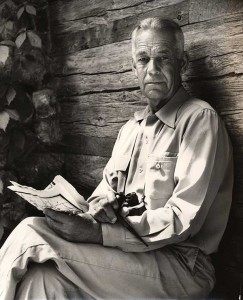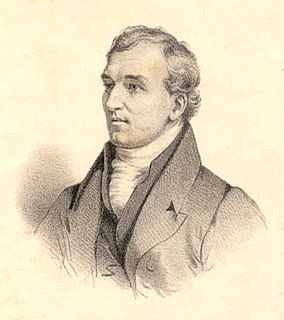A Quote by Sigurd F. Olson
Wilderness can be appreciated only by contrast, and solitude understood only when we have been without it. We cannot separate ourselves from society, comradeship, sharing and love. Unless we can contribute something from wilderness experience, derive some solace or peace to share with others, then the real purpose is defeated.
Related Quotes
We can have wilderness without freedom; we can have wilderness without human life at all, but we cannot have freedom without wilderness, we cannot have freedom without leagues of open space beyond the cities, where boys and girls, men and women, can live at least part of their lives under no control but their own desires and abilities, free from any and all direct administration by their fellow men.
Wilderness appealed to those bored or disgusted with man and his works. It not only offered an escape from society but also was an ideal stage for the Romantic individual to exercise the cult that he frequently made of his own soul. The solitude and total freedom of the wilderness created a perfect setting for either melancholy or exultation.
Wilderness is rapidly becoming one of those aspects of the American dream which is more of the past than of the present. Wilderness is not only a condition of nature, but a state of mind and mood and heart. It cannot be confined to the museum-case status—seen only as a passing diorama from superlative throughways.
I am asserting that those who love the wilderness should not be wholly deprived of it, that while the reduction of the wilderness has been a good thing, its extermination would be a very bad one, and that the conservation of wilderness is the most urgent and difficult of all the tasks that confront us, because there are no economic laws to help and many to hinder its accomplishment.
To be commanded to love God at all, let alone in the wilderness, is like being commanded to be well when we are sick, to sing for joy when we are dying of thirst, to run when our legs are broken. But this is the first and great commandment nonetheless. Even in the wilderness - especially in the wilderness - you shall love him.
That is how life goes--we send our children into the wilderness. Some of them on the day they are born, it seems, for all the help we can give them. Some of them seem to be a kind of wilderness unto themselves. But there must be angels there, too, and springs of water. Even that wilderness, the very habitation of jackals, is the Lord's.
It is only in the giving of ourselves to others that we truly live — only with the meeting of our minds — thine and mine — do we become conscious of the divine spark each of us shares — only in sharing in our daily contacts, one with another, in our mutual hopes and fears do we find real peace. The human contribution is the essential ingredient.
Many, and some of the most pressing, of our terrestrial problems can be solved only by going into space. Long before it was a vanishing commodity, the wilderness as the preservation of the world was proclaimed by Thoreau. In the new wilderness of the Solar System may lie the future preservation of mankind.

































